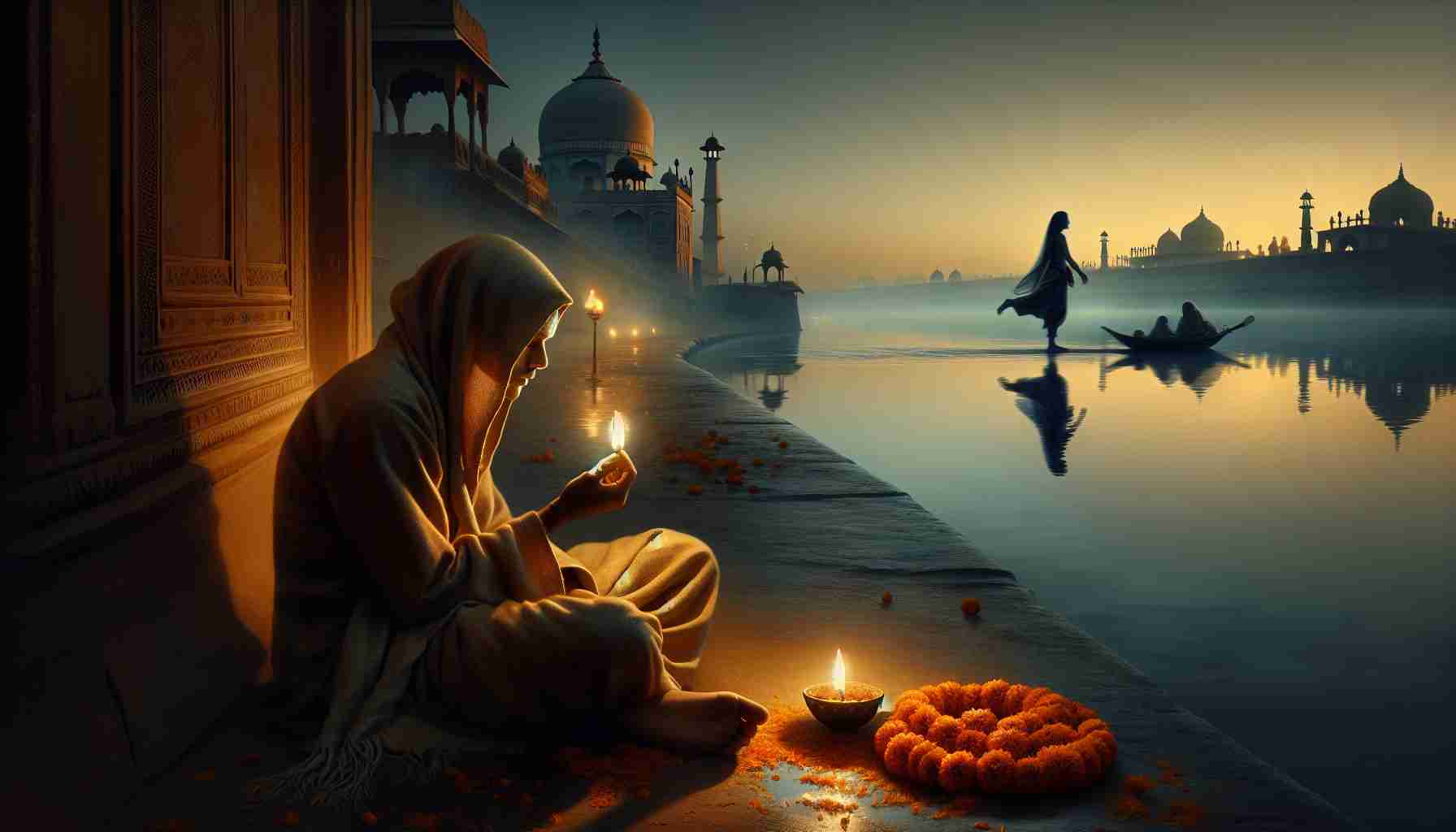

I was once the kind of person who never missed puja. Every morning, I lit the incense sticks, bowed to my small statue of Krishna — the beloved protector and guide — and whispered my prayers with full heart. My amma called me her “little yogi,” even when I had grown taller than her.
But when my father’s illness grew worse, and the doctors shook their heads more than they spoke, something inside me began to unravel.
I prayed harder. I fasted. I even recited verses from the Bhagavad Gita daily, especially the one where Krishna tells Arjuna, “Surrender unto Me; I will deliver you from all sins. Do not fear.” (Bhagavad Gita 18.66). But as days passed and my father's breath grew weaker, it all began to feel... empty.
When he passed, I stopped everything. No prayers. No offerings. Not even the lamp at dusk. I felt betrayed — like I had kept my side of the promise, and Krishna had not.
One evening, months later, I stood alone at the banks of the Yamuna. The river looked still and dark, like how my chest felt. I didn’t plan to go there; my feet just walked. I watched the diya — the little floating lamp — someone else had released into the water. Its flame flickered but didn’t go out.
A small girl ran up beside me, maybe no more than 6. She clutched a marigold garland in her tiny hand.
“Help me put it in?” she asked, as if we had always known each other.
I didn’t answer. But when she extended it toward me, I took it. The garland was warm, fresh, smelling of ghee, turmeric, and life.
We placed it gently in the water together. She whispered, “For Ganesha-ji — remover of obstacles.”
I nodded, though I hadn’t said His name in months.
Then she ran off to her mother, leaving me alone again, but not quite the same.
I found myself sitting by that river every evening after that. Not praying. Not expecting. Just being. Some days, I would recite softly, “He who sees inaction in action, and action in inaction, is truly wise.” (Bhagavad Gita 4.18)
Slowly, the silence became less heavy. The water started to look like it was moving again.
One evening, I lit my own diya. My first in many months. Not as a return to faith, but as a question to it.
I remembered a verse from the Upanishads: “As a man who walks in darkness fears again and again, even so does one who is ignorant fear.” (Katha Upanishad 1.2.7)
Maybe I didn’t need all the answers. Maybe walking — even slowly — back toward the Light was its own kind of trust.
Today, I still miss my father. Some prayers still feel dry. But when I light my evening lamp, I feel something again.
Not certainty. But closeness.
And that, I’ve learned, is enough.
I was once the kind of person who never missed puja. Every morning, I lit the incense sticks, bowed to my small statue of Krishna — the beloved protector and guide — and whispered my prayers with full heart. My amma called me her “little yogi,” even when I had grown taller than her.
But when my father’s illness grew worse, and the doctors shook their heads more than they spoke, something inside me began to unravel.
I prayed harder. I fasted. I even recited verses from the Bhagavad Gita daily, especially the one where Krishna tells Arjuna, “Surrender unto Me; I will deliver you from all sins. Do not fear.” (Bhagavad Gita 18.66). But as days passed and my father's breath grew weaker, it all began to feel... empty.
When he passed, I stopped everything. No prayers. No offerings. Not even the lamp at dusk. I felt betrayed — like I had kept my side of the promise, and Krishna had not.
One evening, months later, I stood alone at the banks of the Yamuna. The river looked still and dark, like how my chest felt. I didn’t plan to go there; my feet just walked. I watched the diya — the little floating lamp — someone else had released into the water. Its flame flickered but didn’t go out.
A small girl ran up beside me, maybe no more than 6. She clutched a marigold garland in her tiny hand.
“Help me put it in?” she asked, as if we had always known each other.
I didn’t answer. But when she extended it toward me, I took it. The garland was warm, fresh, smelling of ghee, turmeric, and life.
We placed it gently in the water together. She whispered, “For Ganesha-ji — remover of obstacles.”
I nodded, though I hadn’t said His name in months.
Then she ran off to her mother, leaving me alone again, but not quite the same.
I found myself sitting by that river every evening after that. Not praying. Not expecting. Just being. Some days, I would recite softly, “He who sees inaction in action, and action in inaction, is truly wise.” (Bhagavad Gita 4.18)
Slowly, the silence became less heavy. The water started to look like it was moving again.
One evening, I lit my own diya. My first in many months. Not as a return to faith, but as a question to it.
I remembered a verse from the Upanishads: “As a man who walks in darkness fears again and again, even so does one who is ignorant fear.” (Katha Upanishad 1.2.7)
Maybe I didn’t need all the answers. Maybe walking — even slowly — back toward the Light was its own kind of trust.
Today, I still miss my father. Some prayers still feel dry. But when I light my evening lamp, I feel something again.
Not certainty. But closeness.
And that, I’ve learned, is enough.